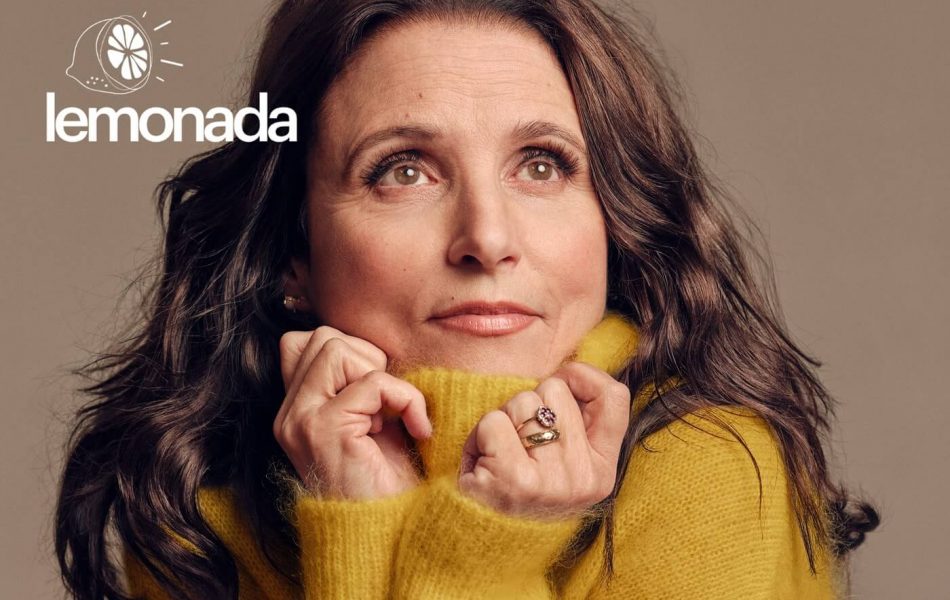Podcast recommendation – Wiser than me TM (2023-)

Wiser Than Me™ with Julia Louis-Dreyfus, produced by Lemonada.
Podcast recommendation – Wiser than me TM (2023-)
In her seminal essay The Second Sex, first published in France in 1949, Simone de Beauvoir discusses the idea of the woman as the Other, as a differentiated creature in respect to the man, who instead embodies what we might now call the “default” human being. Integral to de Beauvoir’s concept of the woman as Other is the implication that such Otherness entails a failed recognition of the female self: «He is the Subject, he is the Absolute – she is the Other» (de Beauvoir, [1953] 1997: 16). The marginalization of female subjectivities foregrounded by de Beauvoir is an issue that feminist scholars have since been observing in a variety of disciplines and practices, ranging from history, to philosophy, education, and healthcare. Additionally, in patriarchal societies, older women find themselves in a condition of twofold Otherness, due to the intersection of two minoritized identities, ascribed respectively to the feminine gender and to old age. American philosopher Susan Sontag famously describes this phenomenon as “the double standard of aging”, where she observes that, although «the emotional privileges this society confers upon youth stir up some anxiety about getting older in everybody», it is mostly women who suffer the consequences of ageist biases, as «(s)ociety is much more permissive about aging in men (…)» (Sontag, 1972: 286).
A recent study by the Gena Davis Institute on Gender in Media offers quantitative data that confirms the persistence of gendered ageist biases in Hollywood: characters over 50 are less than 25% of all characters in top-grossing movies and popular shows released between 2010 and 2020; when 50+ characters do appear in Hollywood movies, 4 out of 5 of them are men. Hollywood not being a welcoming industry for older women is far from surprising. The entertainment press is replete with anecdotes from both A-list celebrities and up-and-coming actors recounting how the number and diversity of screen roles decrease dramatically once a woman reaches 40. The issue has also been captured in a popular 2015 episode of Comedy Central TV series Inside Amy Schumer, tellingly titled “Last F**kable Day”. In the show, 50+ stars Tina Fey, Patricia Arquette and Julia Louis-Dreyfus discuss how «in every actress’ life the media decide when she finally reaches a point when she is not believably f**kable anymore». The three stars proceed to explain to a puzzled Schumer how the same fate does not apply to ageing male actors, who continue to be cast as seducers and love interests much longer.
Nearly a decade after that hilarious yet punchy commentary on Hollywood’s double standard, Julia Louis-Dreyfus herself created a podcast to give voice to women over 60 and draw on their expertise and life experiences. The podcast, titled Wiser than me, launched in April 2023 and as of May 2024 is in its second season. Each episode, released on a weekly basis, features an hour-long conversation between Louis-Dreyfus and a woman older than her. The interviewees’ list comprises actresses, writers, artists, entrepreneurs, and other prominent female public figures who share their perspectives on personal and professional matters, and more generally, provide stimulating insights on navigating life once we enter the so-called third age. The result is a thought-provoking exploration of older female subjectivities, which is enhanced by the long format and by Louis-Dreyfus’ genuine curiosity for her interviewees’ stories and words of wisdom.
The premiere episodes of seasons one and two resonate particularly with the research interests of the AGE-C project. Season one opens with an interview with two-times Academy Award recipient Jane Fonda. Fonda, who was 86 years-old when the show first aired, offers a lucidly self-aware account of a life always in the spotlight: from her difficult relationship with her father (Hollywood legend Henry Fonda), to her efforts to conform to her male co-stars’ expectations; from her discovery of women’s solidarity through activism, to the cross-generational, global popularity revamped in her later life thanks to Netflix hit Grace and Frankie. Drawing on her own introspective work, Fonda also elaborates on what she calls, using screenwriting terminology, life’s “third act”, which she encourages everyone to embrace with a sense-making purpose.
Season two of Wiser than me premieres with an interview to another two-times Academy Award winner, 78 years-old actress Sally Field. Field tells, among other things, about the difficult transition from TV to cinematic actress, and how she managed to successfully move across drama and comedy roles. Field also addresses a delicate moment in her acting career, that occurred at the turn of the 1990s. At the age of 42, Field co-starred alongside a then-32 years-old Tom Hanks as her potential love interest in 1988 comedy Punchline; a few years later, at the age of 47, Field was cast as Tom Hanks’ mother in 1994 hit Forrest Gump. This shift in Field’s casting has been subsequently interpreted as exemplary of Hollywood’s treatment of actresses in their 40s, and it is even referenced in the previously mentioned comedy sketch “Last f**kable day”.
Wiser than me is available for free on all major podcast platforms.
References:
de Beauvoir, S. (1997), The Second Sex, London: Vertigo (First published in English in 1953).
Sontag, S. (1972), «The Double Standard of Aging», The Saturday Review, 23/9/1972.
Written by: Dr. Gloria Dagnino
Image credit: Wiser Than Me™ with Julia Louis-Dreyfus, produced by Lemonada.